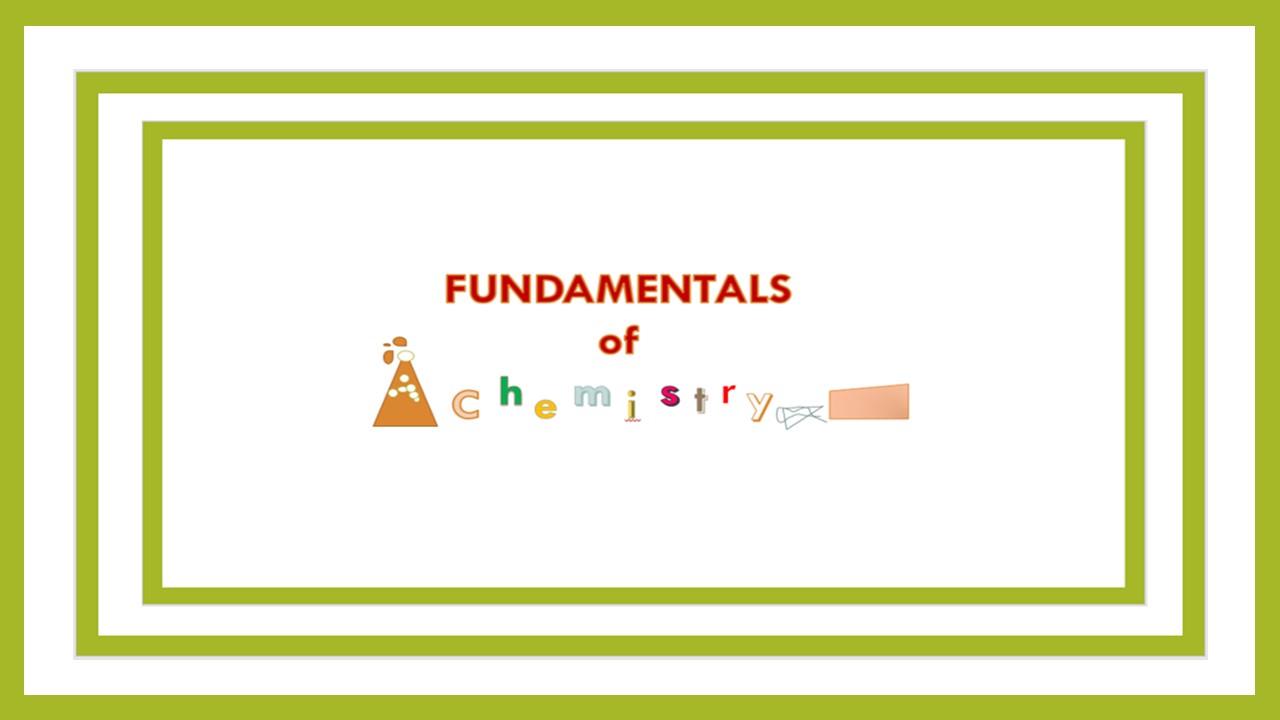This subject is designed to attain Basic Communication Skills for students who are focused on the interrelated activities on the four macro skills namely listening, speaking, reading and writing. The lessons deal primarily on the comprehensive review of basic grammar and composition using activities in line with their chosen field of specification. It also includes lessons on the use of the library and other study aids to expose students to all possible of coping with their learning needs.
- Teacher: Andrey Labordio
This course covers the fundamentals of chemistry and its basic principles. The scope of Chemistry, and importance, including its concepts applied to inorganic, organic, biochemistry, atomic and molecular structure, kinetic – molecular theory, chemical and physical changes, solutions, and colloids. The course emphasizes the problem-solving calculations, chemical equations, and nomenclature. Topics include measurements, matter, energy, atomic theory, bonding, molecular structure, nomenclature, balancing equations, stoichiometry, solutions, acids and bases, gases, and basic organic chemistry. Upon completion, students should be able to understand and apply basic chemical concepts and demonstrate basic laboratory skills necessary for success in college-level science courses. This course is intended for the students who require a basic knowledge of Chemistry for use in their daily lives or as a prerequisite for other courses, and who have not previously taken a Chemistry subject.

- Teacher: Aimee Samar
Welcome to Workplace Values and Ethics course subject. This subject deals
with concept of values, morality, as well as cultural beliefs and upbringing in
all area of industry. Decisions made by shift managers or corporate presidents
may affect thousands of individuals or entire communities. Consumers today
expect and demand integrity, honesty and transparency in all levels of their
environment. Understanding those expectations if the key to communicating
core values and behavior not only to employees, but society in general.

- Teacher: Romel Vicuña
This course covers the fundamentals of computers and computer nomenclature, particularly with respect to personal computer hardware and software used in today’s business environment. Students will survey and use business applications programs utilizing pre-written programs that include word processing, spreadsheets, databases, presentation graphics, and Web browsers. Students completing the course will have a solid understanding of computer concepts, how to use computers in today’s business world, and how to access information on the World Wide Web.
- Teacher: Manuel Bobis
- Teacher: Elmer Brampio
The course will cover the concepts and application of orthographic projection, isometric representation, and basic dimensioning for mechanical. Also this course will discuss schematic diagram and PCB layout using CAD.
- Teacher: Cyberg Joseph Oribiada
This course will cover basic in carpentry such as Joinery, Technical terms related to Joinery, their description, identification and application, Various type Wood-working machines, their prescriptions, use; care and maintenance. Basic in Pattern- making and foundry that include brief description of pattern making machineries, circular-saw, Bond and Universal wood-working machines, wood-turning, Lathe, their uses. Contraction and shrinkage allowance for various metals, their influence on pattern making. Basic in machinist trade that includes Setting up work on milling machine, planning machine matching fixing, cutters, adjustment, side, milling cutting, grove more key way, cutting back pinion and simple gears.
- Teacher: Roger Borromeo
- Teacher: Jonathan Mondragon
Course Description:
This course will focus on the introduction to theory, analysis and design of electric circuits. Voltage, current, power, energy, resistance, capacitance and inductance. Kirchhoff's laws node analysis, mesh analysis, Thevenin's theorem, Norton's theorem, steady state and transient analysis, AC, DC, phrasors, operational amplifiers, transfer function.
- Teacher: Alritz Escoto
This course is designed to expose the students in many fitness activities. Through this varieties of fitness skills, one will be more knowledgeable as to process of continued fitness throughout one’s lifetime. The course is also intended to introduce the students to the method of procedure for teaching fitness, nutritional health, and general wellness principles. Students will complete as assessment measuring aerobics fitness, strength, flexibility and nutrition.
- Teacher: Andrey Labordio